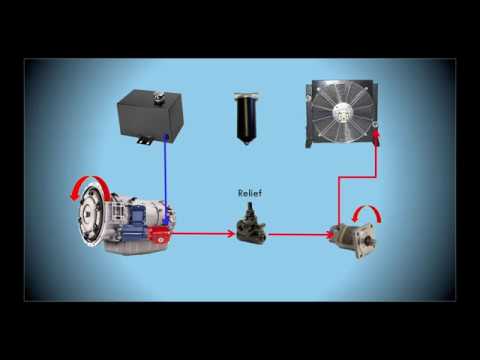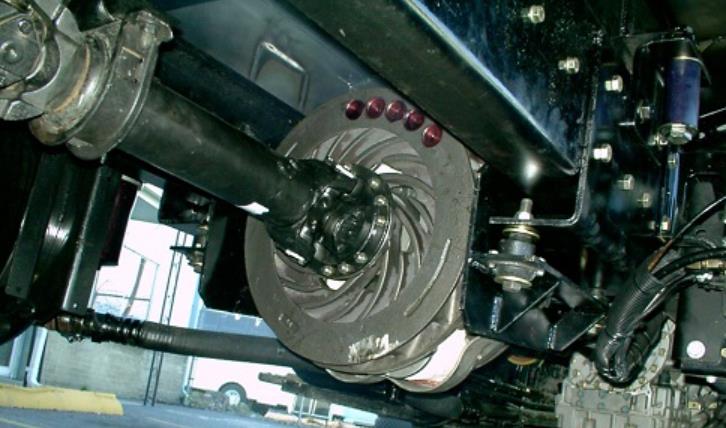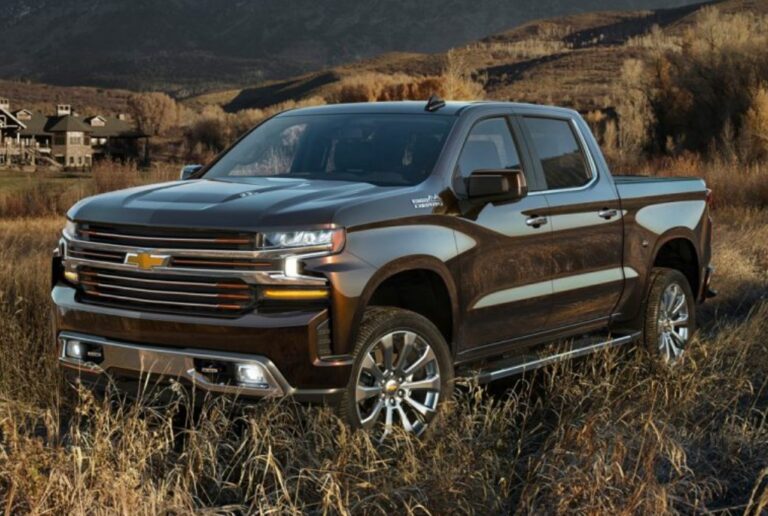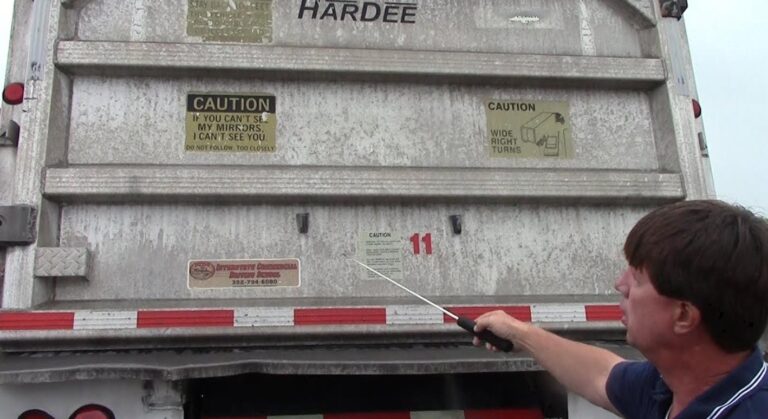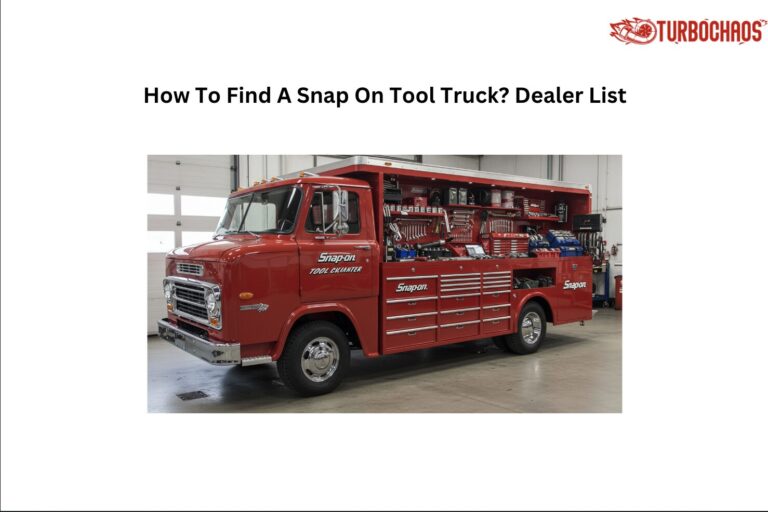What Is A Wet Kit On A Semi Truck? A Complete Breakdown
What Is A Wet Kit On A Semi Truck? A wet kit is a hydraulic system installed on semi-trucks to power various types of equipment. It is an essential component that allows the truck to operate machinery like dump trailers, flatbeds, and more. This article will delve into the intricacies of wet kits, their applications, and why they are vital in the trucking industry.
Key Takeaways
- A wet kit is crucial for operating hydraulic equipment on semi-trucks.
- Regular maintenance is essential to ensure the wet kit’s longevity.
- Wet kits are versatile and can be used in various applications.
What Is A Wet Kit On A Semi Truck?
A wet kit on a semi-truck is a hydraulic system that enables the truck to operate various types of hydraulic equipment, such as dump trailers and cranes. It typically consists of a hydraulic pump, reservoir, hoses, and control valves, all powered by the truck’s Power Take-Off (PTO) unit.
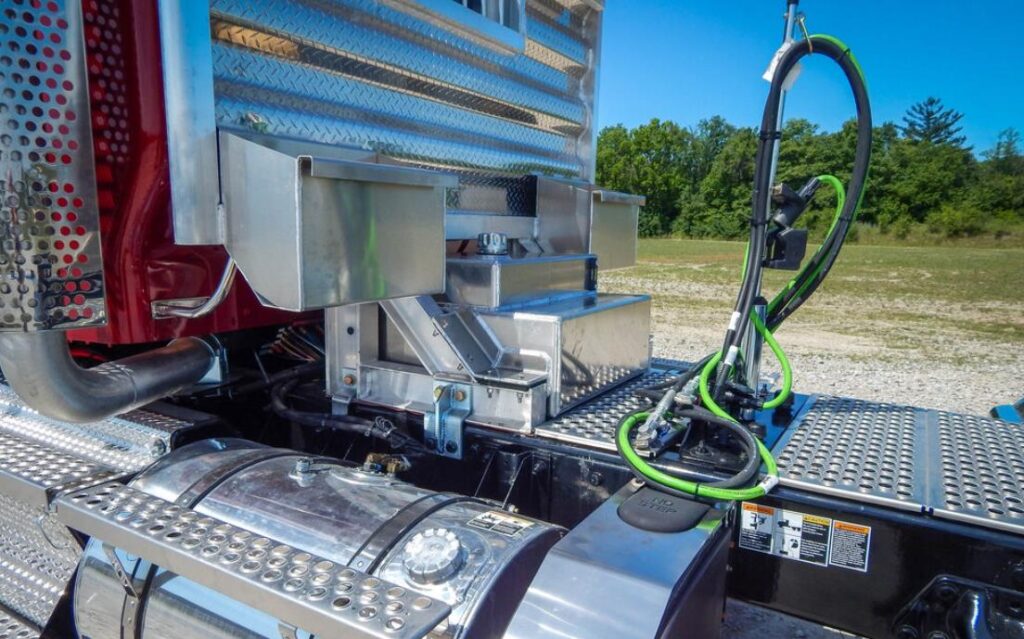
Types of Wet Kits
Standard Wet Kits
Standard wet kits are the most common types used in the industry. They are generally used for dump trailers and similar applications.
Specialized Wet Kits
These are designed for specific applications like car haulers or detachable trailers.
Importance of Maintenance
Regular maintenance is crucial for the longevity of a wet kit. Trucks with wet kits work much harder than other trucks because the engine needs to idle or run the PTO (Power Take Off), sometimes for more hours than it runs while driving.
Preventative Measures
A thorough and routine preventative maintenance plan can save you from costly repairs in the long run.
Applications of Wet Kits
Wet kits are not just limited to one or two types of machinery. They are versatile and can be used in various applications.
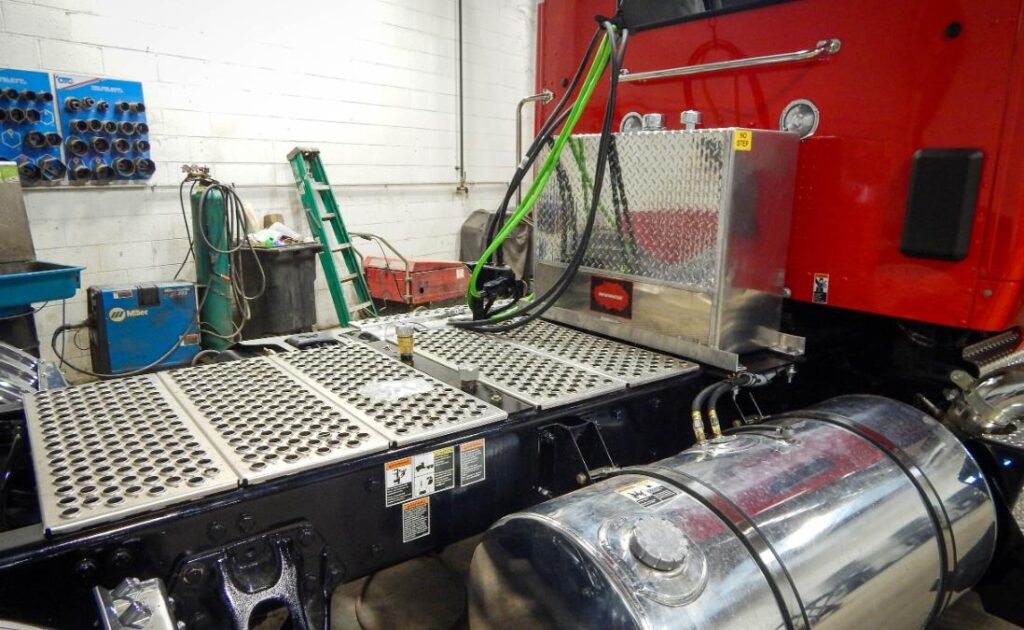
In Construction
Wet kits are often used in construction sites to operate heavy machinery.
In Agriculture
In the agricultural sector, wet kits are used to operate equipment like balers and plows.
Installation and Repair
If you need to install a wet kit, it’s advisable to consult certified technicians for efficient handling of all PTO wet kit issues.
Choosing the Right Service Provider
White Tank has built its reputation as the most reliable semi-wet kit installation, repair, and maintenance provider in Missouri, Kansas, and Southern Illinois.
Advanced Customization of Wet Kits
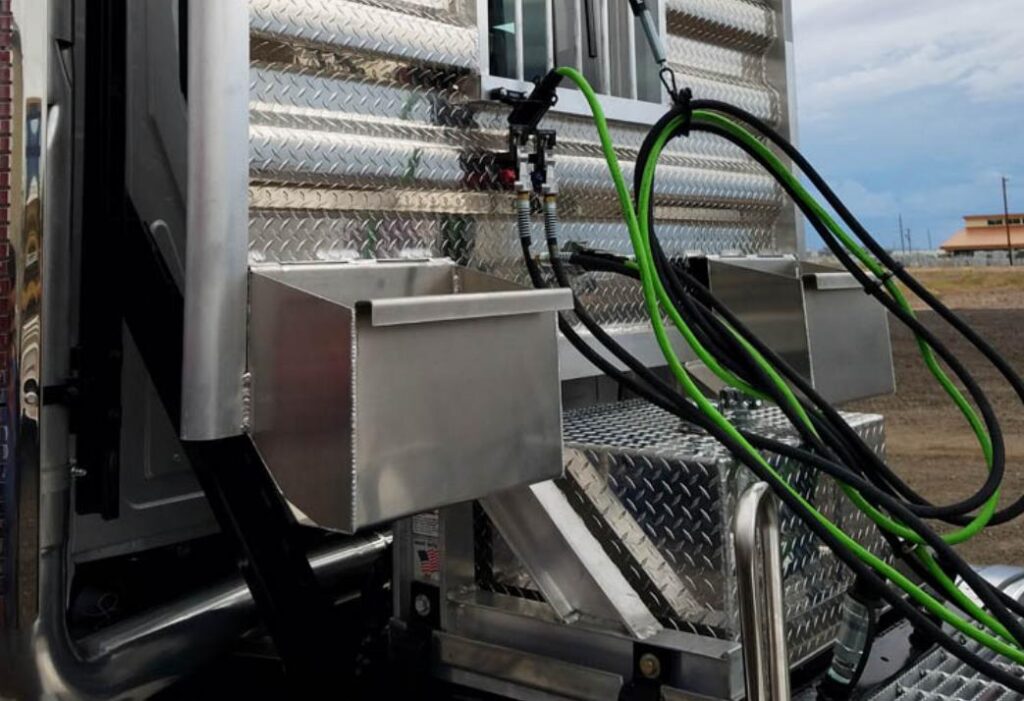
Dual-Function Wet Kits
One of the intriguing aspects of wet kits is their adaptability. For instance, a dual-function wet kit can be set up to work for two specific applications.
This flexibility allows truckers to switch between different types of trailers, such as side dump trailers and tank trailers, without needing to modify the hydraulic system extensively.
Cold Weather Considerations
Keeping Hydraulic Oil Warm
If you’re operating in colder climates, it’s worth considering a setup where part of your fuel tank serves as your oil tank. The hot diesel in your fuel tank can help keep your hydraulic oil warm, ensuring smoother operation in winter.
Cost Factors
Installation Costs
The cost of installing a wet kit can vary depending on the type and complexity of the system. For specialized setups like hydraulic-driven blowers for sand trailers, the cost can go up to around $20,000 per truck.
Hydraulic Systems: Pressure Variations
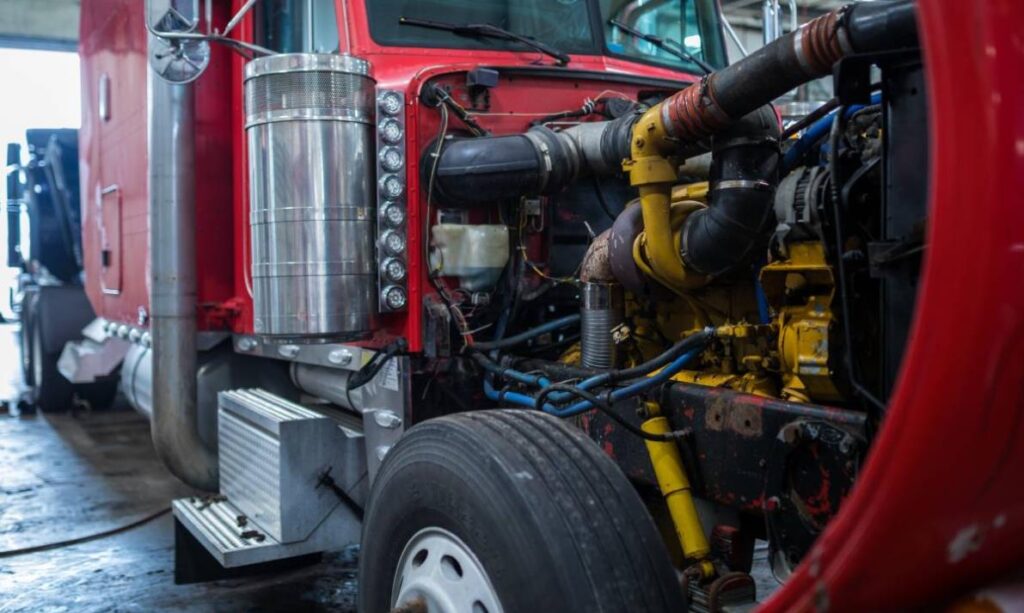
Low and High-Pressure Systems
Wet kits can operate at different pressure levels to accommodate various types of trailers. Low-pressure systems are generally used for dump trailers, while high-pressure systems are used for trailers with hydraulic motors, such as walking floors and product pumps.
How Does A PTO Wet Kit Work?
A PTO (Power Take Off) Wet Kit is an essential component for semi-trucks that need to power hydraulic accessories like dump trailers, cranes, and more.
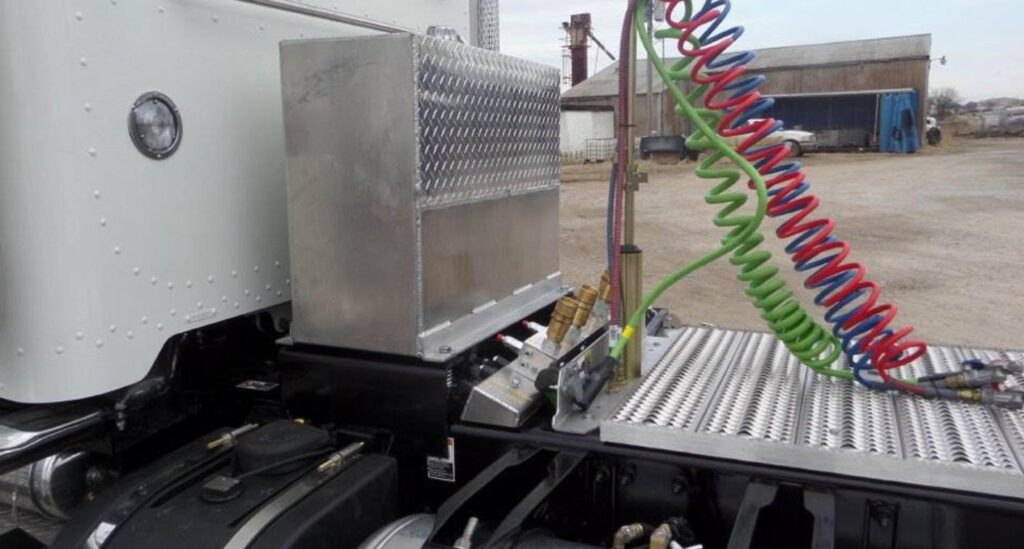
The PTO triggers the hydraulic pump, which then sends hydraulic fluid through hoses into cylinders. This fluid movement enables various operations, such as lifting loads. The process is a closed cycle, ensuring continuous operation.
Components of a PTO Wet Kit
The PTO Wet Kit comprises several units, including:
- Hydraulic hoses and fittings
- Control valves
- Pumps
- Reservoirs or tanks
- Filters
These components work in tandem to ensure smooth hydraulic operations.
How To Install Wet Kits On Semis?
Installing a wet kit on a semi-truck involves several steps. First, you need to mount the PTO and the hydraulic pump. After that, you’ll need to build pump support and plumb lines.
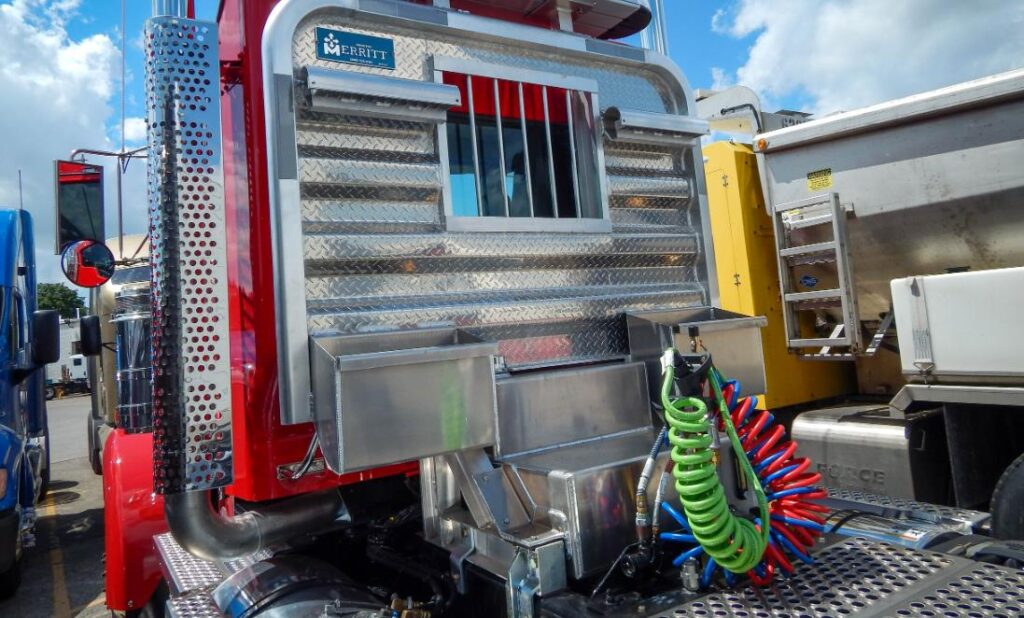
If you’re running a dump trailer, you’ll also need a valve to control it. The installation process can be complex, so it’s often best to consult professionals or follow detailed guides.
Tools Needed for Installation
To install a wet kit, you’ll need the following tools:
- Wrench set
- Screwdrivers
- Hydraulic fluid
- Sealing tape
The Importance Of PTO Wet Kit Maintenance
Maintaining your PTO Wet Kit is crucial for its longevity and optimal performance. Semi-trucks with wet kits operate in demanding environments, pulling heavier weights and working for longer hours.
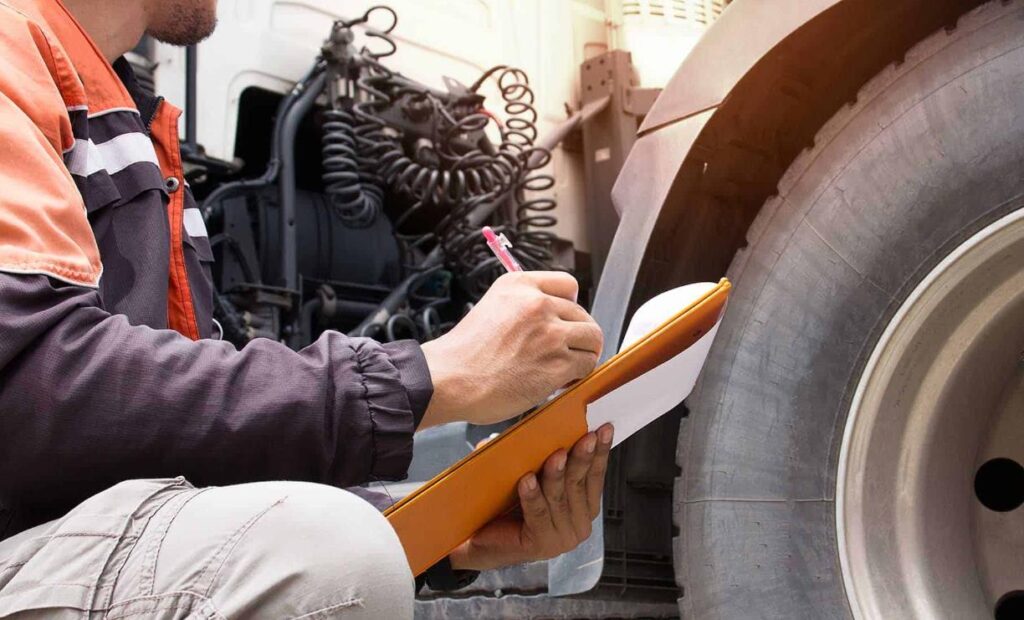
A regular maintenance plan can offer several benefits, such as protecting the integrity of your kit and saving money in the long run by avoiding catastrophic damage.
Maintenance Tips
Here are some maintenance tips to keep your wet kit in top condition:
- Regularly check for leaks
- Replace worn-out parts
- Use quality hydraulic fluid
Is A Wet Kit The Same As A PTO?
No, a wet kit and a PTO (Power Take-Off) are not the same, although they are closely related. A wet kit is a hydraulic system that uses a PTO to power various accessories on a semi-truck, such as a dump trailer or hydraulic crane.
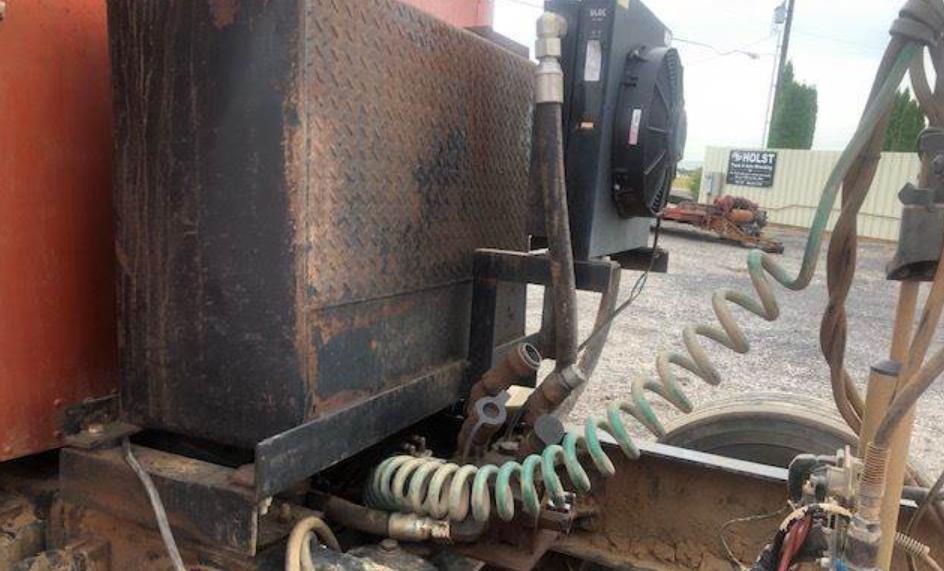
The PTO is a device that transfers power from the truck’s engine to auxiliary components. In the context of a wet kit, the PTO powers the hydraulic pump, which in turn operates the hydraulic systems.
Key Differences
- Functionality: A PTO is a component, while a wet kit is a system.
- Components: A wet kit includes a PTO, hydraulic pump, and other elements.
- Applications: PTOs are used in various applications, but wet kits are specifically designed for hydraulic systems on semi-trucks.
How Much Does It Cost To Put A Wet Kit On A Semi Truck?
The cost of installing a wet kit on a semi-truck can vary significantly based on the type of truck, its size, and its intended use. Generally, the cost ranges from $2,000 to $5,000 for the kit itself.
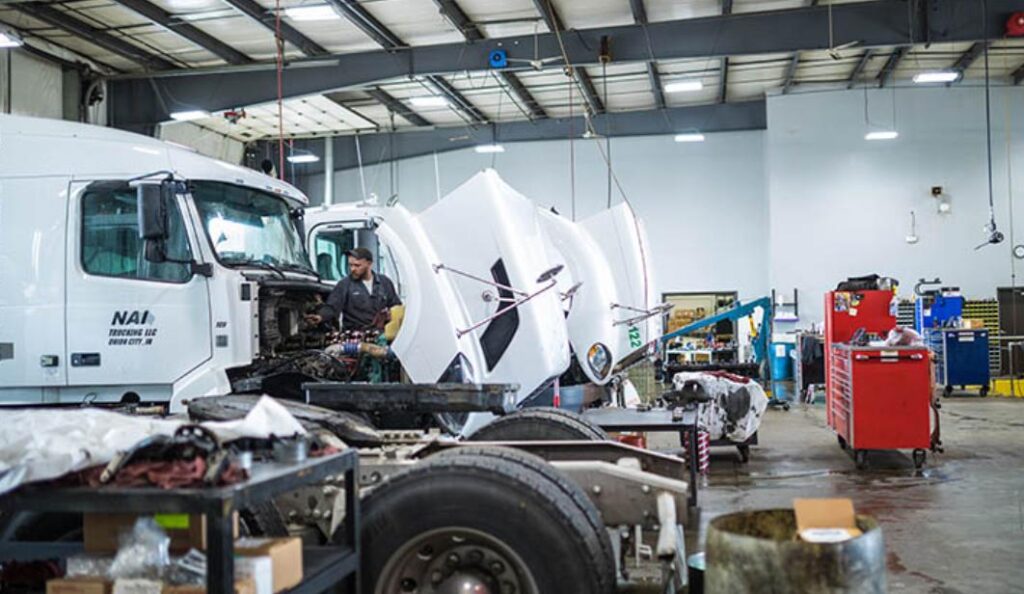
Labor costs can add another $500 to $1,500 depending on the complexity of the installation. It’s essential to budget for these costs and any additional maintenance expenses down the line.
Factors Affecting Cost
- Type of Truck: Different trucks may require different types of wet kits.
- Components: The quality of the components can affect the overall cost.
- Labor: Installation complexity can influence labor costs.
How Does A 2 Line Wet Kit Work?
A 2-line wet kit is often best for lower usage applications, such as occasionally raising and lowering a dump body or trailer. In a two-line system, oil must flow in both directions through each hose depending on which part of the dumping cycle one is in.
One common issue with two-line systems is overheating, which can occur if the PTO is not disengaged before leaving the dump site. This can rapidly heat up the oil inside the pump and damage it beyond repair.
Advantages and Disadvantages
- Simplicity: Two-line systems are generally simpler but may lack some features.
- Overheating Risks: These systems are more prone to overheating.
- Cost: Generally cheaper but may incur more maintenance costs.
Conclusion
In summary, a wet kit on a semi truck is an indispensable component for operating hydraulic equipment. From construction to agriculture, its applications are vast and varied. Regular maintenance is key to ensuring its efficient operation and longevity.
Top FAQ’s
Can a wet kit be customized for dual functions?
Yes, wet kits can be customized to serve dual functions, allowing you to switch between different types of trailers without extensive modifications.
How can I keep my hydraulic oil warm in cold weather?
Partitioning part of your fuel tank to serve as your oil tank can help keep the hydraulic oil warm, ensuring smoother operation in colder climates.
What are the cost factors involved in installing a wet kit?
The cost can vary depending on the type and complexity of the system. Specialized setups like hydraulic-driven blowers for sand trailers can cost up to $20,000 per truck.
Can wet kits operate at different pressure levels?
Yes, wet kits can operate at both low and high-pressure levels to accommodate various types of trailers.

Matt Rex brings 12 years of specialized automotive expertise, holding a professional degree in Automotive Engineering Technology. As the founder of Turbochaos, he delivers comprehensive diagnostic services, performance optimization, and fleet maintenance solutions, backed by advanced certifications in hybrid/electric systems and ADAS technology. Its innovative methodologies have earned industry recognition while maintaining a 98% customer satisfaction rate.

